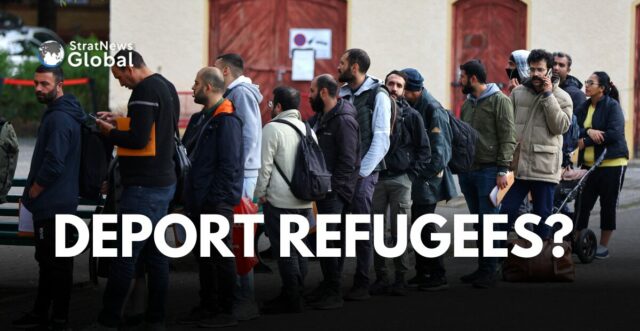As Berlin contemplates measures to restrict refugees, Germany’s migration commissioner has a plan. He proposed deporting to Rwanda migrants who arrive illegally to the European Union through its borders with Belarus.
Pressure To Change Migration Policies
There is rising pressure on Germany’s ruling coalition government to restrict irregular migration. This proposal has come amid this pressure. This stance follows a fatal stabbing linked to Islamic State at a city festival last month. The stabbing fuelled far-right opposition to criticise Berlin’s migration policies.
Joachim Stamp, Germany’s Special Representative for Migration Agreements, said the EU could utilize existing asylum facilities in Rwanda. This was initially intended for Britain’s 2022 plan to send unauthorized migrants to the East African nation. The British plan was scrapped by Keir Starmer’s new government in July.
U.N. Supervision
Under Stamp’s proposal, the asylum procedures in Rwanda would be conducted under the supervision of the United Nations.
“We currently have no third country that has come forward, with the exception of Rwanda,” Stamp said in a podcast by Table Media published on Thursday.
Stamp, a member of the junior coalition FDP party and whose position sits in Germany’s Interior Ministry, said this model would specifically target refugees crossing the EU’s eastern borders.
“My suggestion would be that we concentrate on this group. It’s about 10,000 people a year,” he said, dismissing broader proposals from the conservative opposition to apply such a model to all refugees. He said Rwanda has publicly expressed its willingness to continue implementing this model.
Removing “Connection”
In addition, Stamp suggested removing the so-called “connecting element” in the new Common European Asylum System (CEAS), which currently requires external asylum procedures to be conducted in countries where the asylum seeker has a social connection.
The European Union agreed in December on new rules to handle irregular arrivals of asylum seekers and migrants, a deal hailed as a breakthrough after almost a decade of bitter feuds on the issue. It could take until the end of 2025 for the pact to take full effect.
(with inputs from Reuters)





